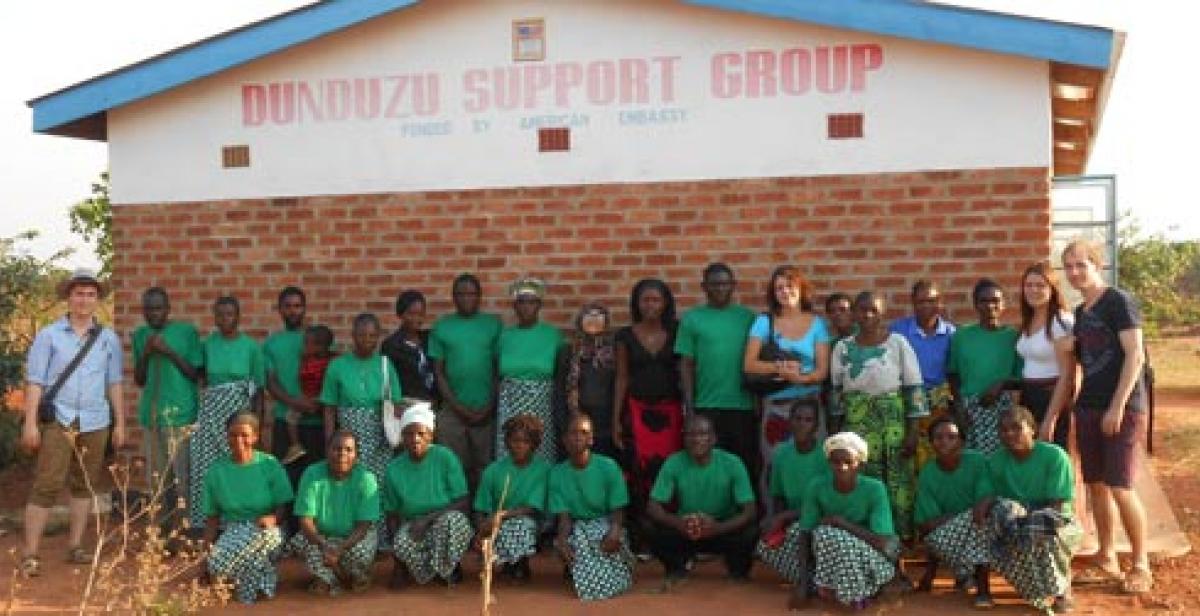Our placement is swiftly reaching its conclusion and yet I feel as though we have so much we still need to do! With only having a couple of weeks to go it has meant looking back and evaluating our progress so far. We have had the opportunity to work on varied projects from compost manure and HIV/AIDS management to the installation of water pumps. Currently our focus is with one particular community by the name of Ekaiweni where we hope to help build eco-toilets. Our hope is that Ekaiweni will serve to be a model village, clearly demonstrating the benefits of eco-toilets and hence encouraging neighbouring communities to build their own. Eco-toilets through providing manure can aid in providing food security for vulnerable families and on the whole is better and more sustainable for the environment than the use of fertiliser.
All these projects have taught me valuable lessons and are still continuing to do so. One key lesson which comes to mind is the importance of building relationships with community members. For instance, one of our first tasks was to construct and carry out presentations on HIV/AIDS to Aids support groups, it was then that we realised that individuals are more likely to pay heed to what you have to say after you have made the effort to get to know them first. Our first Aids support group was located in a place by the name of Dundhuzu and we had made an attempt to visit them a few times prior to actually giving them any information or helping them dig a compost pit. We would spend the day dancing, playing games, and cooking traditional meals. Once we had gained their trust and respect it was evident that they had warmed to us and attendance to our sessions increased.
The programme has also helped me to see how much work is needed for a project to be successful. There are a multitude of factors which need to be considered, many of which can go overlooked. When working in a country so different from your own there are bound to be glitches and obstacles. One prime example would be when we had organised a full day of work consisting of community visits, presentations, as well as the digging of compost pits. We had to walk for 40 or so minutes to reach our destination as there was a fuel shortage so we had no vehicle, only to be told that someone had passed away and therefore everyone was partaking in a period of mourning. Though tired and slightly restless we nevertheless collected ourselves and headed down to the next community we had scheduled only to find that they too were mourning the death of the exact same person and so they too were busy. It ended up that all our appointments were cancelled as neighbouring communities all pay their respects to individual members regardless of whether they knew them or not, and in a sense everything stops until the person is laid to rest.
There have been many instances like the above where we have had to take a step back and remember that we are amidst a culture which is not like our own in many respects. Frankly it is this aspect that has been rather enjoyable for me. Moreover, we have had to work under conditions which are unfamiliar to us such as electricity/water shortages, not being able to always refer to the internet when seeking information and becoming acquainted with the method of work here. I really do not think that all that I have gained from this experience can be fully understood in this moment or recognised, but can only be reflected upon once I’m back at home and can really appreciate the changes in my mind set. The next week or so looks to be action packed, we even plan to spend a night or so in Ekaiweni before waking up bright and early to continue our work on the eco-toilets! I began this blog by exclaiming how we still had so much yet to do, and though that might be true nonetheless I do believe the work we have done so far has the potential to last and hopefully the expression quality not quantity will ring true in our case!
By Sammy Hussain
Photo: Volunteers with ASG



